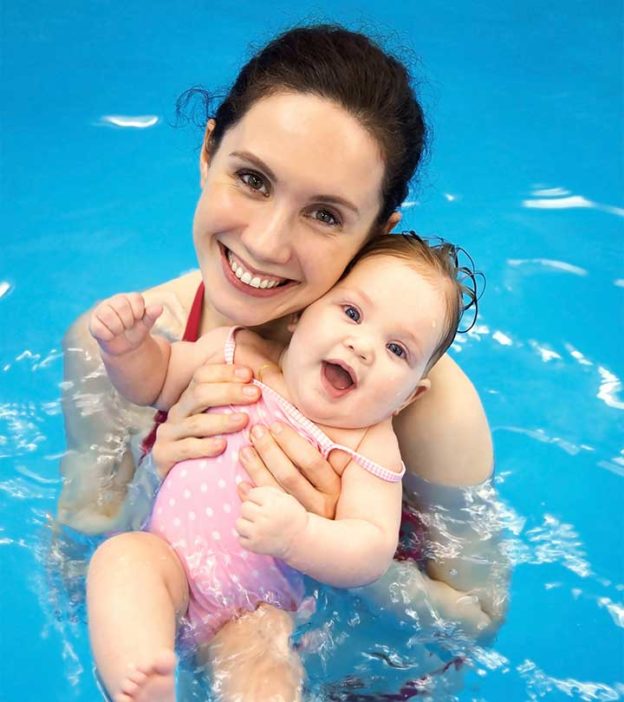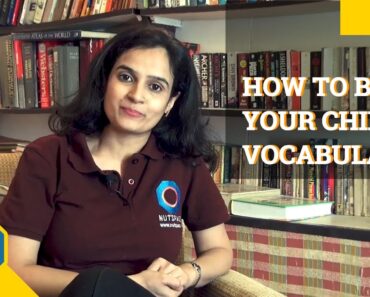
Watching a baby swimming in a pool with their cute little hands and feet can be a heartwarming experience for parents. However, introducing your baby to swimming at the right age is vital to ensure their safety and enjoyment while in the water. Thus, many parents choose to enroll their babies in formal swimming lessons. The main objective of these classes is to teach babies basic swimming skills that increase their chances of survival in a water emergency. Certified instructors generally conduct these lessons in a pool with the parent or guardian’s presence.
Keep reading to know more about baby swimming, its potential benefits, and effective tips to prepare your baby for swimming.
Can Infants Swim?
Infants do not know how to swim from birth. Instead, they need to learn it, just like they would learn to walk. However, they have certain innate reflexes that allow them to perform basic movements resembling swimming strokes (1).
It’s important to note that infant swimming differs from baby swimming.
Infant swimming, also known as survival swimming, typically involves submerging babies under six months in water with the goal of teaching them survival techniques in case of a water emergency. However, this practice is controversial and lacks scientific evidence to support its benefits. Infant swimming may also mostly leverage the innate natural reflexes rather than teaching a new skill, which is the case of teaching babies to swim.
Quick fact
When Can You Take A Baby Swimming?
While babies can be introduced to water from birth, it is not recommended as they can’t regulate their body temperature and are at a higher risk for infections. Thus, most experts recommend waiting until they are at least six months old.
If you want to introduce your baby to the water earlier than six months, ensure the water temperature is warm, around 32℃, to avoid hypothermia. Additionally, avoid taking them to large public pools as it might increase the risk of infections. The American Academy of Pediatrics (AAP) recommends that formal swimming lessons for babies should begin when they are a year old (3).
Point to consider
Consider your baby’s emotional maturity, physical and developmental abilities, and comfort level in the water before deciding to take them swimming.
How To Teach A Baby To Swim?
A trained professional, such as a certified swim instructor specialized in teaching infants and young children, should teach swimming to babies. However, before introducing any swimming techniques, it is essential to start with basic water safety skills. Here are a few points to prepare your baby for swimming.
- Start by familiarizing the baby with the water by placing them in a baby pool or taking them to the shallow end of a pool.
- Use fun and interactive games such as blowing bubbles or splashing to make them feel comfortable in the water.
- Use a flotation device such as a pool noodle or inflatable ring to support the baby’s weight while they are in the water.
- Use a gentle, calm tone and plenty of encouragement to help the baby feel safe and relaxed in the water.
- Slowly introduce the baby to basic swimming techniques, such as kicking and moving arms, while using the flotation device for support.
- As the baby becomes more comfortable and confident, gradually reduce the use of the flotation device.
Quick tip
Look for baby swimming classes and instructors that not only teach swim stroke techniques but also focus on broader water survival competency skills.
What Are The Benefits Of Teaching Your Baby To Swim?
Baby swimming may have several benefits for both infants and parents. Some of the key benefits may include (4) (5) (6):
- Physical development: Swimming may help in the development of babies’ muscles and coordination and improve their overall fitness and stamina.
- Sensory development: Being in the water can provide babies with various stimulating experiences, including the sensation of floating, the feeling of water on their skin, and the sensation of movement. These experiences may aid in the development of their sensory and cognitive abilities in the long run.
- Bonding: Swimming with babies can be a fun and bonding experience for parents and babies. While it allows babies to experience being in the water, it can help parents learn about their baby’s abilities and how they interact with their surroundings.
- Confidence and self-esteem building: As babies learn to navigate the water and accomplish new swimming milestones, they may develop a sense of accomplishment and self-confidence in the long run.
- Sound sleep: Swimming may be a great way to tire out babies and help them fall asleep more easily, benefitting their overall health.
- Social development: Formal swimming classes are often done in groups. It allows a chance for babies to interact with other children. This could aid in the development of their social skills and ability to communicate with others.
- Alternative form of exercise for babies with disabilities: Being a non-weight-bearing activity, swimming can be a great exercise form for babies with special needs who may have difficulty participating in other physical activities.
Besides these, swimming can be a fun and healthy form of exercise and recreation.
Point to consider
Always take swimming lessons under the guidance and supervision of a certified instructor. Adhere to the guidelines and instructions to ensure safe and efficient learning.
1. Do I put diapers on my baby when swimming?
Regular diapers are not suitable for use while swimming as they can absorb water from the pool. Therefore, use swim diapers as they are designed to keep water out and any waste in.
2. What happens if my baby poops in a swim diaper in the pool?
A bowel movement with a swim diaper will not make the pool dirty. Nevertheless, do change as soon as possible if you sense your baby has pooped. Swim diapers can contain solid waste but cannot keep it for too long.
3. Should I dunk my baby when swimming?
Never dunk a baby when swimming, as they aren’t developmentally ready to hold their breath underwater. A few splashes of water on the face are fine, but do not hold the baby underwater.
4. Is a chlorine pool safe for babies?
Research indicates that swimming in chlorinated pools during infancy may be associated with an increased risk of lower respiratory tract infections and allergies (7). However, more research is needed to validate the finding. Generally, chlorinated water is considered safe for babies, provided the chlorine levels in the pool are maintained in appropriate ranges.
Swimming is a fun and beneficial activity that can aid babies’ overall development. Experts recommend giving formal swimming lessons to babies from 12 months of age. However, you may introduce your baby to this essential life skill earlier after taking guidance from your healthcare provider. Getting your baby to learn swimming from a certified instructor and taking all the necessary precautions is a good way to ensure their safety and effective learning. So, take your baby swimming and equip them with the essential skills they would need to learn swimming in a formal setting.
Key Pointers
- Introduce your baby to the water between six and 12 months after consulting your healthcare provider.
- Use a properly fitting life jacket or floatation device to ensure safety.
- Gradually increase the baby’s exposure to water as they become more comfortable and confident in it.
- Supervise your baby closely at all times while they are in the pool.


































